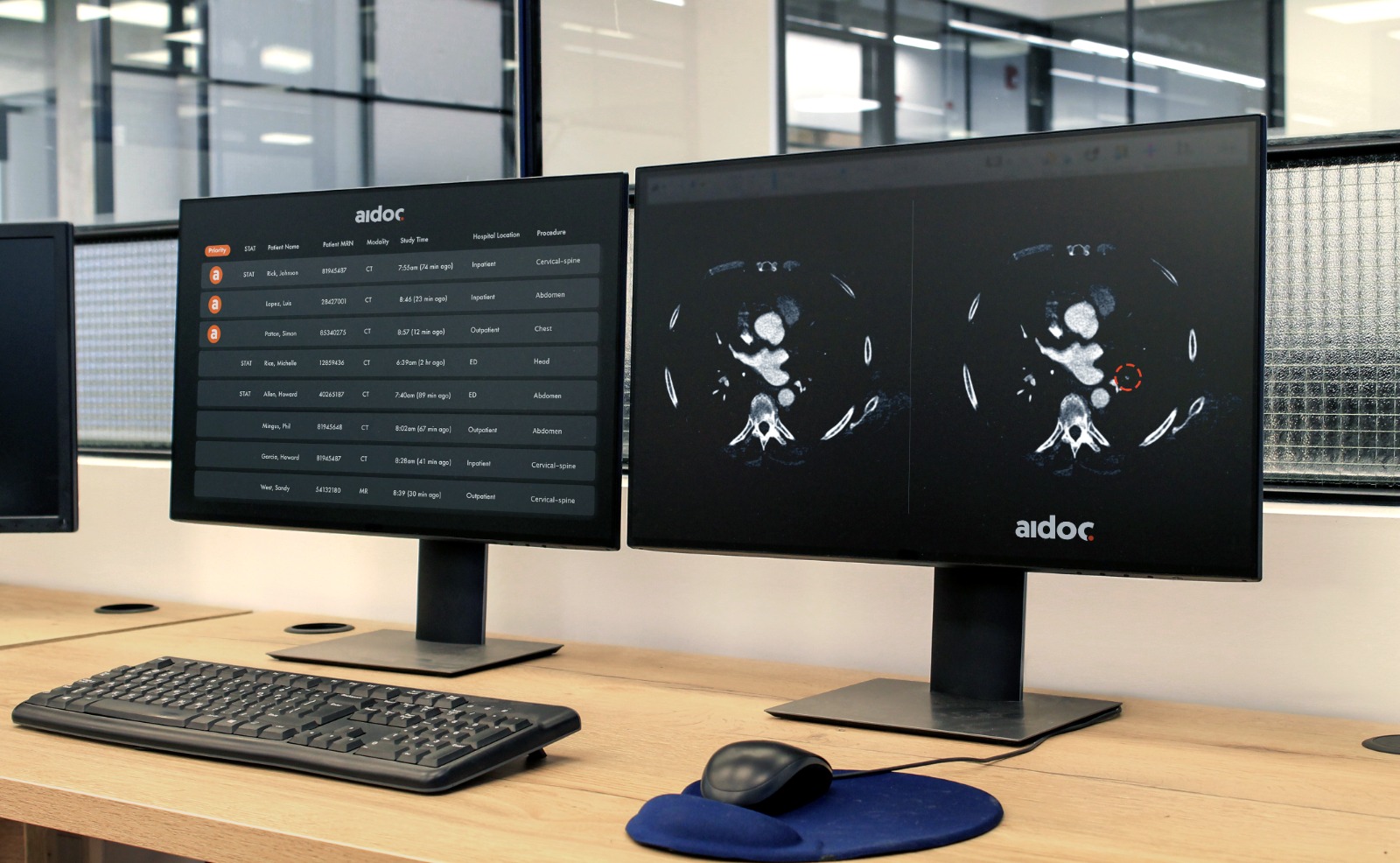
Imaging startup Aidoc is rolling out a tool to help radiologists detect potential Covid-19 cases from CT scans. The company released the triage tool after the Food and Drug Administration issued guidelines allowing companies with cleared triage tools to expand their coverage to Covid-19.
Aidoc’s algorithms won’t be making a diagnosis—rather, they will flag likely Covid-19 cases for review by radiologists. The hope is to catch missed diagnoses in patients that were being screened for another condition, such as stomach pain.

Behavioral Health, Interoperability and eConsent: Meeting the Demands of CMS Final Rule Compliance
In a webinar on April 16 at 1pm ET, Aneesh Chopra will moderate a discussion with executives from DocuSign, Velatura, and behavioral health providers on eConsent, health information exchange and compliance with the CMS Final Rule on interoperability.
Tel Aviv-based Aidoc had already developed an FDA-cleared solution to detect pulmonary embolism, when a blood clot blocks one of the arteries in the lungs, using chest CT scans. CEO Elad Walach said that work gave the company a big head start in figuring out how to build a Covid-19 algorithm and what challenges they would face.
“We started a couple of weeks after the onset of the pandemic. Our platform allows for very rapid training of new robust algorithms,” he wrote in an email. “Having said that, the amount of relevant COVID cases (especially subtle ones) is not as high as the other pathologies we cover so it is definitely one of the most challenging ones to develop.”
Aidoc’s solution would look for findings associated with Covid-19 in any CT scan that contains the lung or part of the lung. For example, one of the patterns it is looking for is ground glass opacities, hazy spots that can be associated with Covid-19 pneumonia. Aidoc’s solution would alert a radiologist if this was detected in a CT scan where they were not looking for Covid-19.
“In our experience, it is not unusual for the radiologist to be the first to diagnose COVID-19 disease in patients especially when the disease is clinically unsuspected,” Dr. Paul Chang, vice chair of radiology informatics at University of Chicago Medicine, said in a news release. “The outbreak of the COVID-19 pandemic may occur in waves and should these waves occur, it will become increasingly important to identify imaging findings suggestive of COVID-19 in a variety of clinical settings.”

A Deep-dive Into Specialty Pharma
A specialty drug is a class of prescription medications used to treat complex, chronic or rare medical conditions. Although this classification was originally intended to define the treatment of rare, also termed “orphan” diseases, affecting fewer than 200,000 people in the US, more recently, specialty drugs have emerged as the cornerstone of treatment for chronic and complex diseases such as cancer, autoimmune conditions, diabetes, hepatitis C, and HIV/AIDS.
Photo credit: Aidoc












